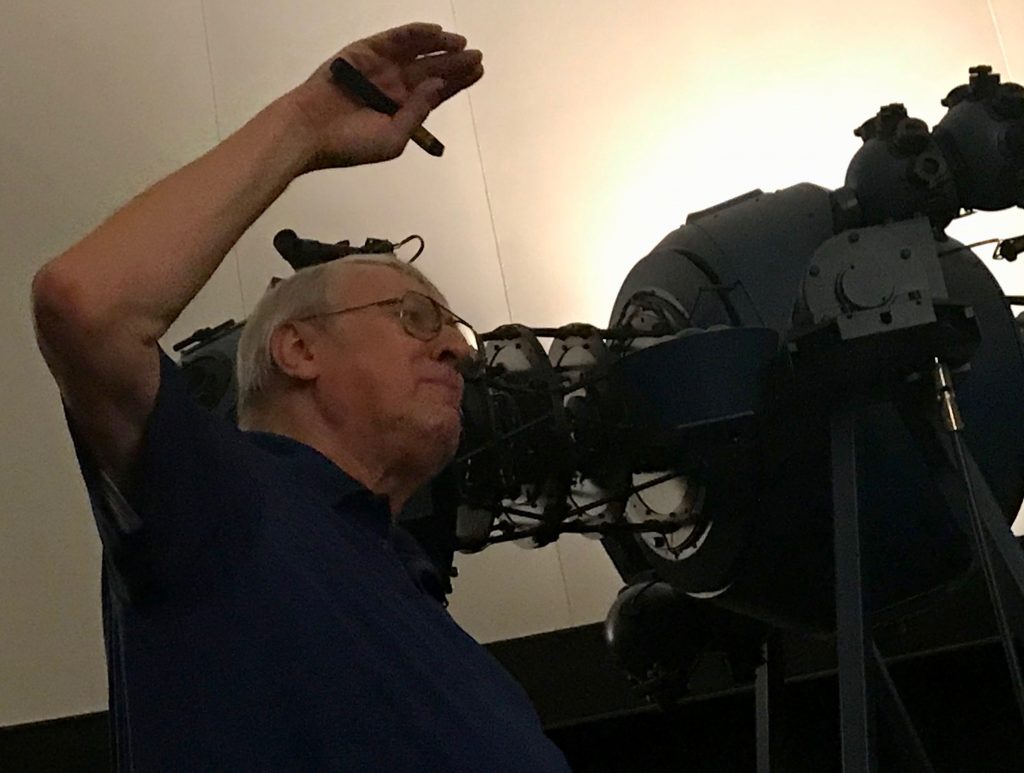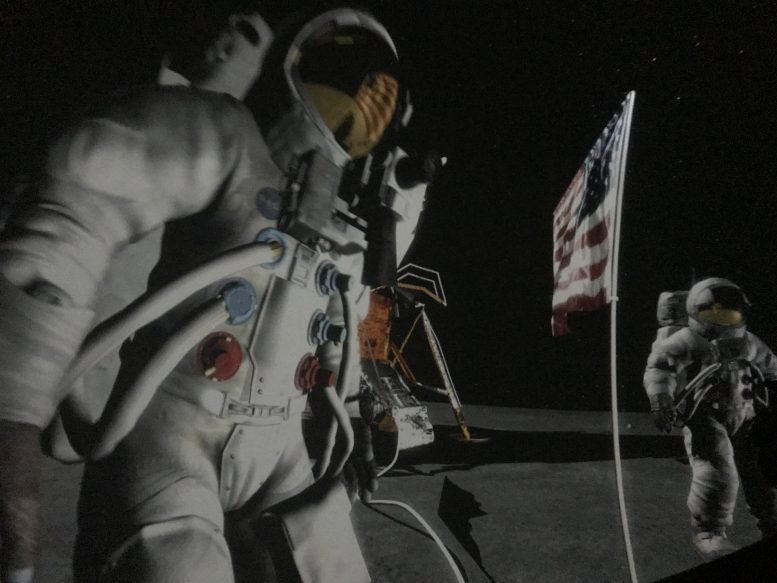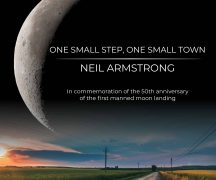By DAVID DUPONT
BG Independent News
Miles Nemeth, 11, would like to go into space someday.
He is disappointed his teenage brother, Cole, won’t be able to go with him. Cole, at 6’5” is too tall to be an astronaut.
This is one of a number of facts that young Miles is very able and very willing to share. He knows which planets it’s unlikely anyone will ever land on because they are made up largely of gas around a solid core. And Mars, he said, gets hit with a lot of astroids.
These unpleasant truths haven’t deterred his galactic wanderlust.
Miles, his brother, Cole, and his mother Dana Nemeth and aunt Denise Sergent were among those who packed into the planetarium at Bowling Green State University Saturday afternoon to celebrate the 50th anniversary of the first time a human stepped onto another space body.
The planetarium screened “Dawn of the Space Age,” a 3-D animated documentary about the race to the moon. The documentary will be shown again tonight (July 21) at 7:30 p.m.
Miles has known about the moon landing for as long as he can remember. He first got fascinated in science through dinosaurs, and then when his reading skills improved he thought space would be another worthwhile area to explore.

Dale Smith, the director of the planetarium, witnessed the landing as it happened.
He was watching with a number of fellow students in a Columbia University workshop sponsored by NASA. He was between his junior and senior years at Colgate University in upstate New York where he was studying astronomy. “They had 30 of us on scholarship trying to get some of us to work at NASA,” he said of the workshop.
The students would gather in a lecture hall to watch the telecast on CBS with Walter Cronkite, who Smith affectionately calls “Uncle” Walter. “He was incredible,” Smith said. “He didn’t need a teleprompter. He didn’t need a script. He had it all in his head.”
Smith said his most vivid memory was not of the moon landing itself but of the subsequent liftoff from the moon to rejoin the command and service module that was in orbit while Neil Armstrong and “Buzz” Aldrin explored the surface.
While we now know that operation went flawlessly, Smith said, that wasn’t a certainty then.
If there had been problems, command module pilot Michael Collins could have come down within eight miles of the moon’s surface for a rescue. Below that, Aldrin and Armstrong “were on their own,” Smith said.
Cronkite knew well that detail. Smith remembers the liftoff and the astronauts going up and up without any problems. When they hit the eight-mile threshold, Cronkite exclaimed: “Hot dog! They made it!”
Even then, Smith said, people had a tendency to take the technology for granted.
In 2000, he was visiting Russia and spoke with cosmonaut Georgy Grechko, who flew three Soyuz missions in the mid-1970s. Smith called him a hero, but Grechko demurred. By the time he flew the technology had improved.
The true heroes were those “early guys” such as Yuri Gagarin, the first man in space, who flew in still largely unproven space craft.
Smith recalled when he was in fifth grade he persuaded his mother to let him stay home from church so he could watch the launch of an unmanned missile. The rocket ended up blowing up and disintegrating on the pad.
Throughout his childhood and through his years in college, the space race was “part of the woodwork,” he said. “Now we looked back in awe” at what was accomplished.
Smith felt commemorating the moon landing made it worth coming in during the summer to present these special showings at a time the planetarium is normally dark. “Besides I’m old and nostalgic.”
The response has been good, with more than 80 attending Friday night and with the 114-seat venue filled to capacity on the anniversary itself.
Dana Nemeth said she and her family came because she wanted to do something to mark the day.
She was 3 when the moon landing happened and remembered her parents waking her up so she could watch. Her sister, who is older, said she remembers vividly the scene unfolding on the family television.
That sense of significance will not fade with the years, Smith told the audience gathered in the planetarium. In 2500 much else about our era will be relegated to the dustbin of history. But, Smith said, “historians will surely write about the event that happened 50 years ago today.”


